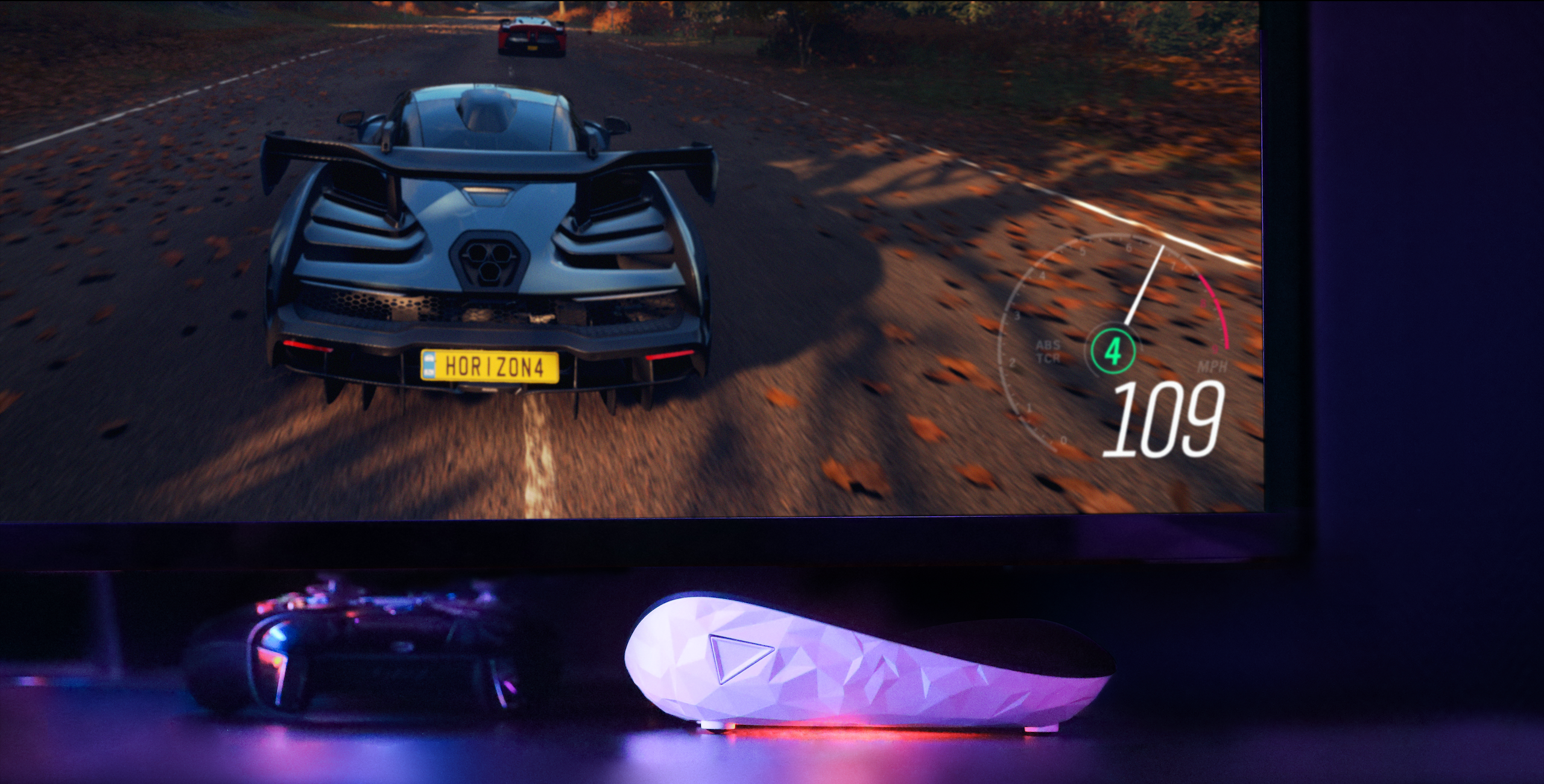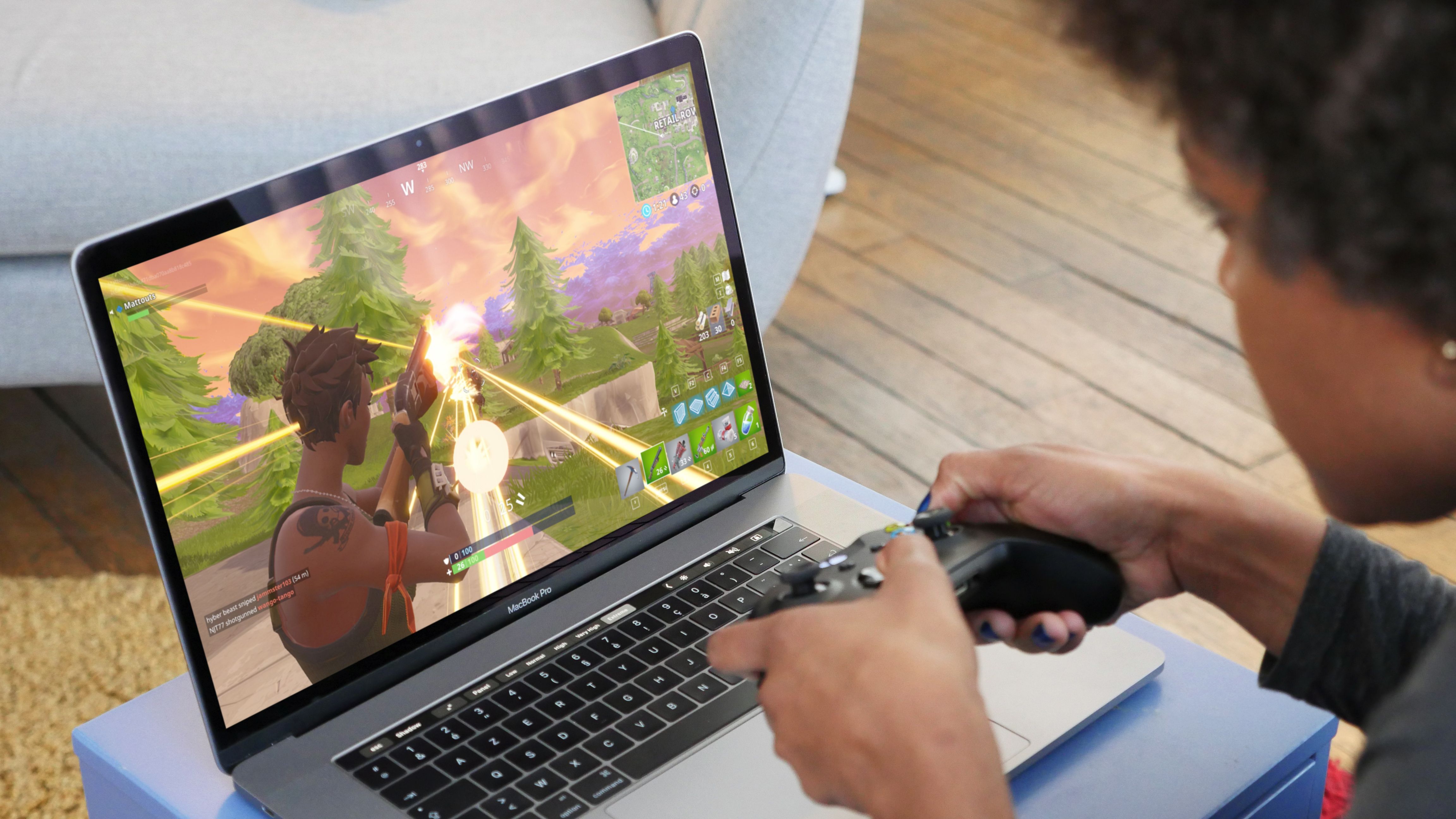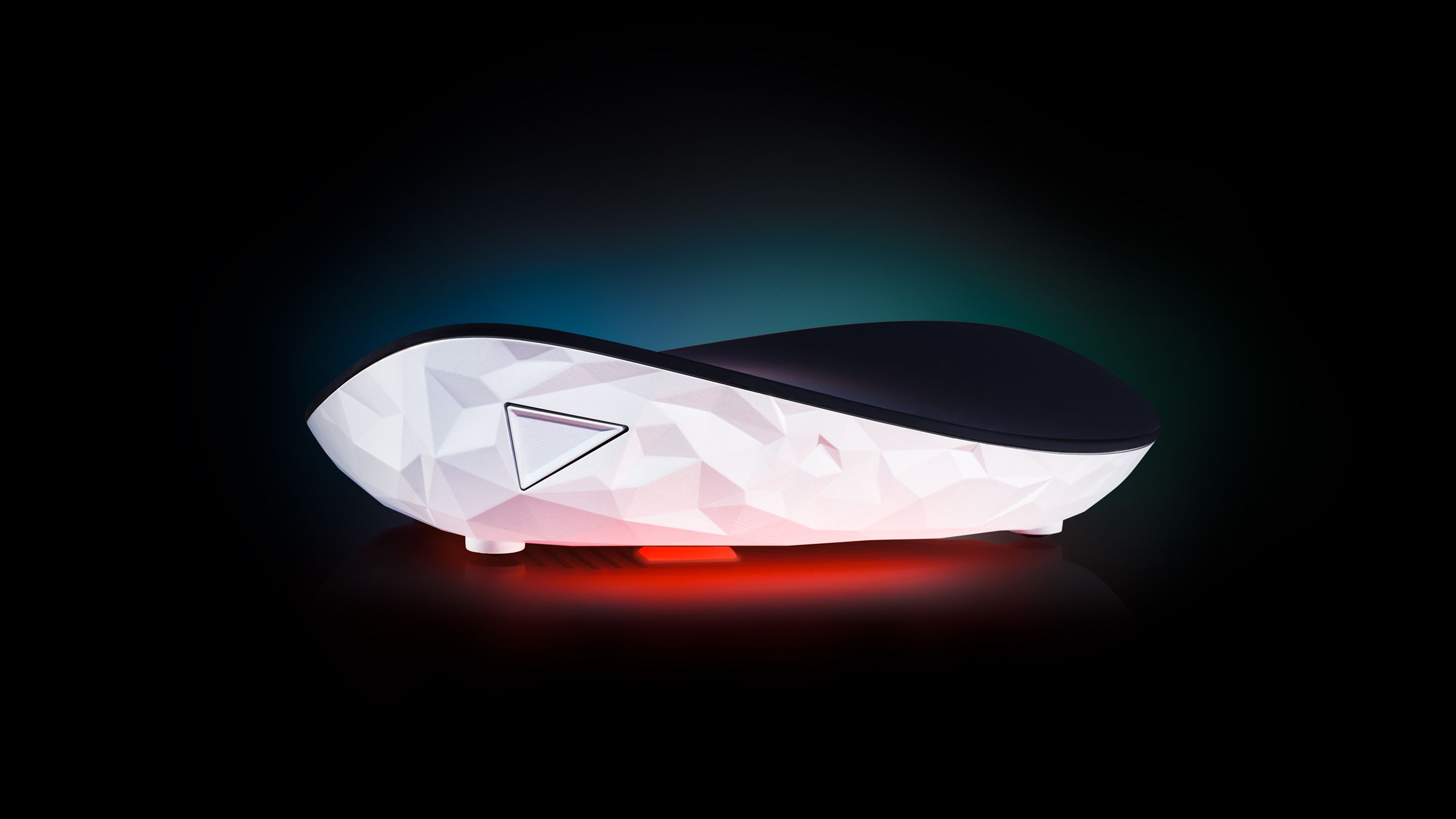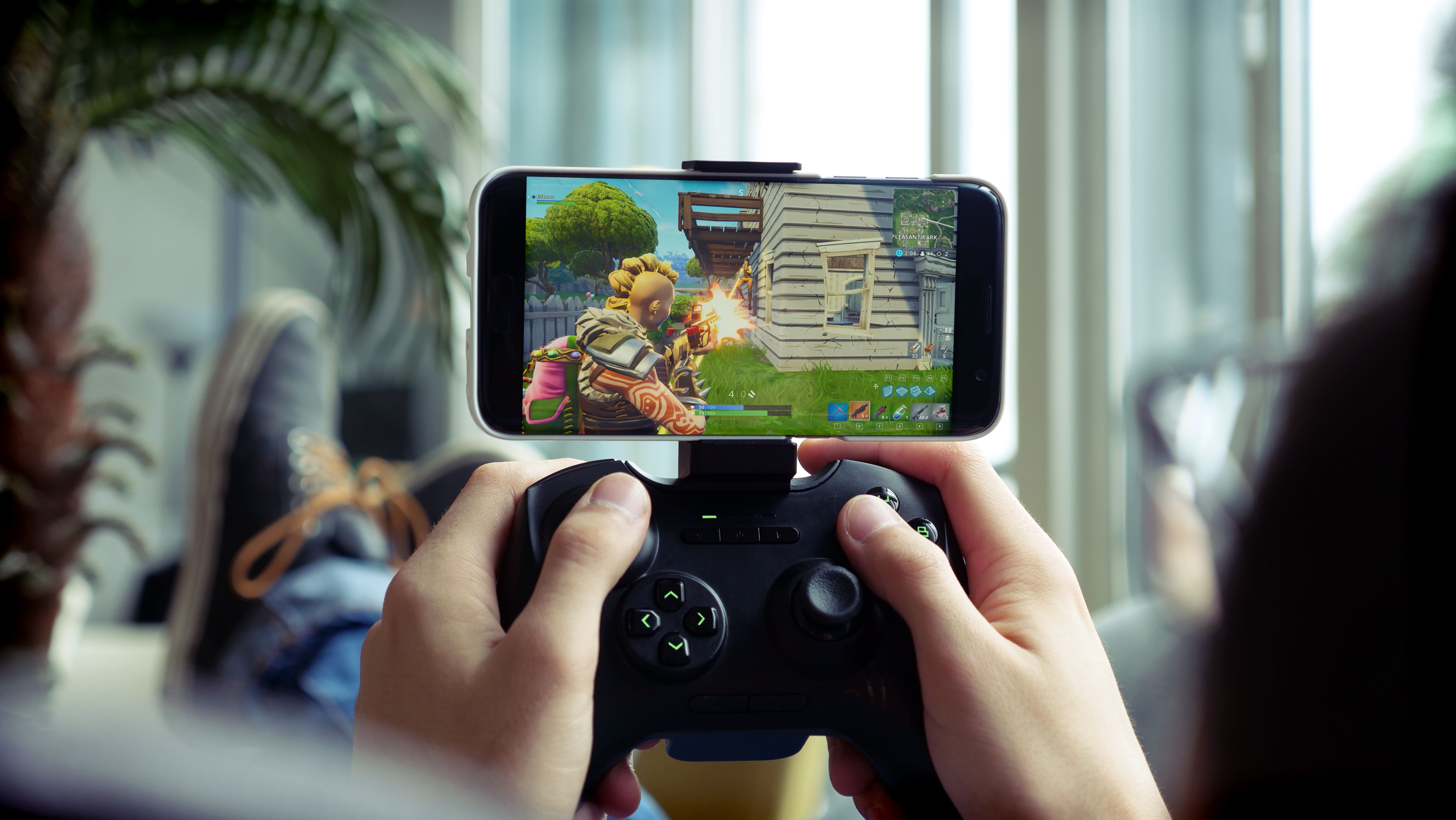When I first heard about Shadow–the cloud-based gaming service–I was excited. When I loaded it up for the first time in Starbucks on Jamaica Ave–I was impressed. When I loaded up the Shadow Ghost–I was disappointed.
Shadow is pretty simple to understand after you've explained it to all your friends and family twice. There's a server (AKA a computer) set up in a room in California stacked alongside hundreds of other computers. You log in on a device of your choosing and that computer in California turns on and streams to your screen (wherever you are) through the power of the internet!
That computer in California, which I will refer to as the "Shadow PC" from now on, is no joke. It's a high-end gaming PC with a Nvidia GTX 1080 equivalent and lot of storage for games and a blazing fast™ internet speed of 1Gb/s. Both the Shadow PC and the Ghost are capable of streaming games in 4K at 60fps and at 144fps in 1080p.
[pullquote]"...I can't advise the average consumer to shell out that much money for a remote gaming PC."[/pullquote]
Now, this sounds amazing for people who want to enjoy the power and capabilities of a high-end gaming PC. With the release of the GTX 2000 series of cards, it's not the highest, but it comes with a big cost and a couple of caveats.
First, let's talk about the price.
Shadow, as a service, costs $34.95 per month; the Shadow Ghost streaming box costs $139.95. If you were to pay for Shadow for the same length as the average lifespan of a relevant gaming PC (around 5 years)–lifespan here meaning how long the PC can run games effectively–then you're looking at more than $2000 just for the service. With the Shadow Ghost, that price rounds out at $2200. That's my problem with the Shadow service.
As someone who has been gaming on PC for my entire career, I can't advise the average consumer to shell out that much money for a remote gaming PC. Because for the same amount of money (or less) you could create a comparable gaming PC or better. The Gaming Evo RTX 2080 build that ibuypower sells comes with higher specs in every category and is selling for $1,899. And before you ask, we're not affiliated with them in any way.
That PC can be financed for "as low as $88/month" which is more than double the cost of Shadow, but you actually will own it.
Shadow's service is something I liken to leasing a car. It's great if you want to always have a good car, but you pay for that convenience out-of-pocket. Shadow has promised that they will continue to update and re-tool their Shadow PCs to be able to play the latest games in 4K, so you'll always have peace-of-mind that your Shadow PC can handle the latest games.
The Shadow Ghost is an example of one of these updates as it's available to those who owned the previous Shadow Box free of charge. The Ghost acts as a receiver for you to stream your Shadow PC directly to your television in your living room. Think of it as a Steam Link or just another Xbox or PS4 in your house. The device itself works though it's not discreet when it is sitting on top or next to your cable box.
The Shadow Ghost is a strange shape that some might find interesting and I just felt didn't match the modern clean lines of my living room. Not to mention the device emits a bright red light from below whenever it is on.
It has a passive cooling system, which means you'll never hear a fan turn on. PS4 players will be grateful that this device doesn't have a tendency to spin up like an F-15. This passive cooling system also means that the Shadow Ghost will consume much less energy in your home versus the average gaming rig. On electricity alone, you'd likely save $40 a month which pays for the service itself.
The unique UI that comes on this little computer is simple, and yet still manages to have some problems. For me, connecting to WiFi was frustrating as the system wouldn't recognize my 5Ghz network. This is on top of the fact that Shadow's PC service can just refuse to work sometimes and requires a few minutes of reboots to get working.
I especially had trouble because I was using Shadow on a myriad of devices. I tried playing PUBG on my iPhone, my Macbook, the Shadow Ghost, and my very own actual gaming PC. Each time I loaded it up on a different device I had to futz with the resolution, even sometimes having my mouse disappear when going from 4K in my living room to 3440x1440p on my desktop.
[pullquote]"But for someone looking to get into PC gaming, I'd just shell out more money at the start for a more dependable and straight-forward process."[/pullquote]
Nothing about the process of playing on the Shadow Ghost felt simple. From syncing my wireless mouse and keyboard and sitting awkwardly on my couch to having to unplug the Ghost just to get the red light to stop. But the real nail in the coffin for me is the fact that none of this, the Shadow Ghost nor the Shadow PC service, work if you don't have an ideal network setting.
I've got Gigabit internet in my home, but still, lapses in latency caused my ping to jump up and down making online games impossible to play competitively, or for picky people, at all. Latency was great at times, but unless I relocated my router to be right next to the Shadow Ghost, I wouldn't enjoy playing anything on it. Even something like Hearthstone, a game that doesn't particularly need a blazing fast internet speed because it's turn-based, felt sluggish and disconnected when trying to play on my TV in my living room.
Ultimately, the novelty of being able to run games on your smartphone or Macbook–devices that aren't meant to be running them at all–isn't worth the price. I'll admit, this is coming from someone who has had a gaming PC equivalent to the Shadow's since 2016 so it's really hard for me to use this service and device in tandem and not just want to walk over to my actual PC. But for someone looking to get into PC gaming, I'd just shell out more money at the start for a more dependable and straight-forward process.
This isn't to say that services like Shadow don't have a place in the market. I've suggested that using Shadow as a video-editing cloud PC device would be a great idea. Allowing multiple users to remotely access one machine from anywhere in the world has its uses.
Sadly, gaming is not one of them. For the money, you're better off getting the real deal.





